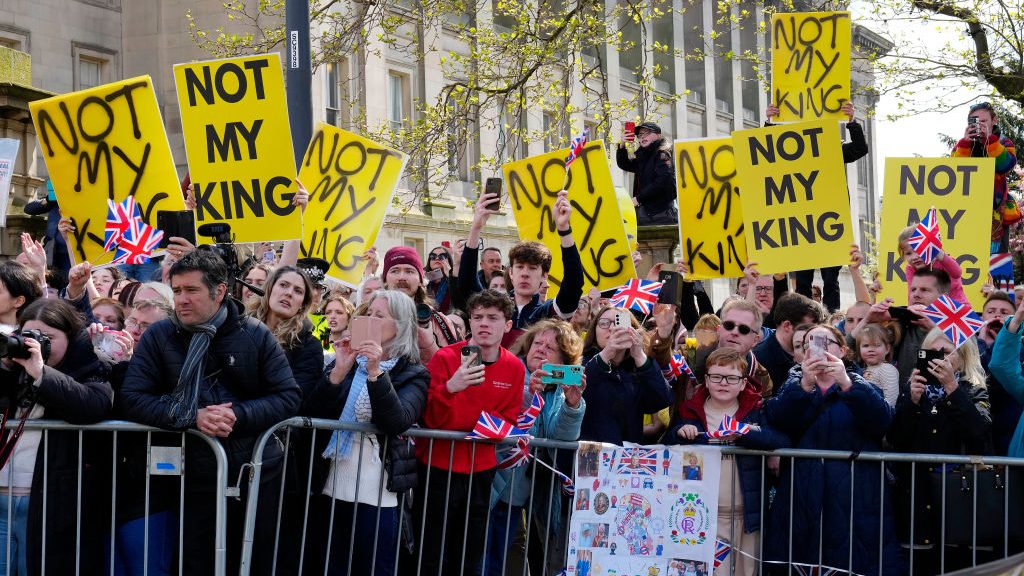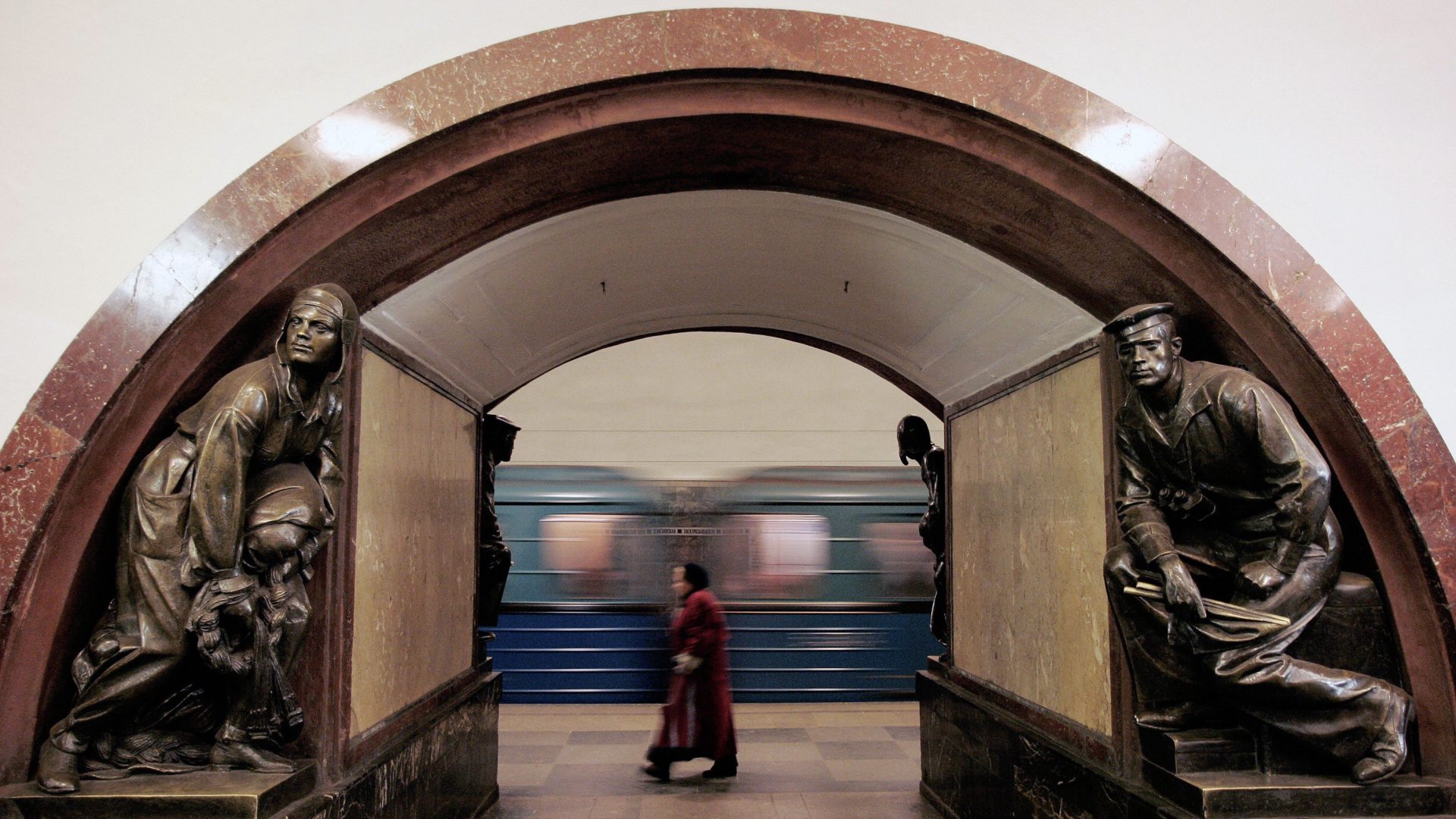I have long felt that the institution of the monarchy in the UK is a glaring irrelevance in today’s society (“Behind the facade”, TNE #339). The process, however, of divestment of the trappings of power and privilege from this dysfunctional family should be a logical consequence of more urgently needed reformation in other areas first.
The UK’s institutions of government desperately need to be dragged out of the cloying mists of centuries-old arcane practice and remodelled into something befitting the expectations of the third millennium. To precipitate such a change to the parliamentary landscape means interfering with the established order and persuading those entrenched in the two-party system to open the doors to a wider spectrum of people who deserve to be heard.
I see the introduction of an electoral system based on a form of PR as the necessary catalyst to altering the political complexion of the main house so that the creation of a written constitution, an elected second house and an elected head of state can be addressed and seriously discussed.
It is time to replace the so-called “Great and Good” of British society with the wise and courageous and only then can the nation begin to call itself a true democracy – and, yes, a republican one at that!
J Wells
Once the coronation is done, can the royals survive irrelevance? Post-Brexit, there’s even less use for a royal family than there was when we were an important nation.
Matthew Pocock
Via Facebook
There seems to be some sort of hysteria regarding the monarchy and how awful it is. Yet for the last couple of hundred years at least we have had, at worst, harmless monarchs and many have been good.
Suddenly, since the death of Elizabeth II, we are talking of our king as a plutocrat: a person having power or influence because of his wealth. He may be rich – and so are lots of others – but the only real power or influence he has is over his staff.
So let’s stop calling him a plutocrat. Whilst we may live in a plutocracy: government by the rich – it has nothing to do with our king who doesn’t in any way govern.
A hereditary monarchy may be “old- fashioned” and it may not be perfect, but we do have a titular head of state who is reliable and non-partisan; an excellent ambassador who, even if he doesn’t write all his speeches (and who does?), represents our country quite extraordinarily well and entertains other heads of state with suitable and much-loved celebration.
Example has shown that we could do a great deal worse with an elected head of state.
Paul Foss
Bristol, Avon
I’m no fan of the royals but the more I read about Harry single-handedly taking on Murdoch, the more I admire him. He’s determined to bring him down and he might just do it.
Vicky Cepel
Brexit bully
The influence of Brexit on the behaviour of Dominic Raab, leading to his ousting as deputy PM, has not been examined enough (“The graceless, remorseless political death of a desperate man”, TNE #338). Raab’s anger stemmed in part from finding civil servants had less bandwidth to carry out his orders because of the difficulties of implementing Brexit. The government is obliquely acknowledging this by rowing back on its promise to ditch all retained EU laws by the end of 2023.
We always knew that leaving the EU would suck the machinery of government into the mud and mire and we need to keep reminding Eurosceptics that their obsession, quite apart from giving no tangible benefits to the UK and damaging our country’s trade, is undermining the government’s ability to govern the country.
Paul Ricketts
Yatesbury, Wiltshire
Long view
Re: Paul Mason’s “We have no chance of being the next Silicon Valley” (TNE #338). As Will Hutton often observes, to achieve innovation you need a) a proactive government that isn’t bogged down in the dogma that the market should be left to sort everything out on its own, and b) a different sort of shareholder that invests long-term, adding value to a company, rather than the typical British investor that extracts value from a company, and sells shares quickly after making a fast buck.
Peter Wilton
Via Facebook
Name shame
Mitch Benn’s list of possible nicknames for Sir Keir Starmer (“Psst, Tories! 27 nicknames for Starmer that are more cutting than ‘Sir Softie’”, TNE #338) misses one that is already circulating in parts of the LGBTQ+ community in response to his pandering to the toxic transphobia peddled by the Tories and their media allies: Sir Queer Harmer.
Pippa Catterall
Professor of History and Policy
University of Westminster
The calls for Starmer to “raise his game” strike me as quite odd. Surely, over the last 13 years Conservatives have set the bar so unbelievably low that if Starmer’s ears are just a notch above sewer level he’s won?
Amanda Baker
Edinburgh, Scotland
Labour’s obsessive focus on the red wall, and on appeasing its voters’ (supposed) prejudices, has deformed their entire strategy. Most red wall seats will drift back to Labour anyway, now that levelling-up has, as Matthew D’Ancona says, been exposed as “a slogan in search of a policy” (“Blame the makers of Brexit”, TNE #337).
Meanwhile, Scotland is coming back into play, and Scotland voted heavily against Brexit. Labour’s refusal even to mention the failures of Brexit – thereby missing one open goal after another – is looking increasingly pig-headed as a clear and growing majority now recognise that it was a mistake.
In 13 years, the Conservatives have wrecked the economy, trashed Britain’s international reputation, and devastated public services (which were in excellent shape in 2010). Quite an achievement. Yet Labour could pull off the even more astonishing feat of losing to this rabble.
Instead of trying to attract whiny old Daily Mail readers, Labour needs to focus on the progressive majority and give them something to be optimistic about. I’d start by getting a new campaign team.
Michael Rundell
Walmer, Kent
It is clear that Labour has a good chance of winning the next election. But they are still insistent that they will make Brexit work and that they will ignore the majority of our population who think it was a mistake.
Therefore, our strategy is clear. All movements that represent the new, pro-European majority should recommend that we only vote for parties who promise to give us the chance to show what we feel in a referendum. Our voice would be huge, influential and would put pressure on Labour.
Tony Martin
East Lothian, Scotland
Beam us up
Nigel Warburton (“On self and Star Trek, TNE #338) is stimulating, as ever. His note on philosopher Parfit’s zeal in attempting “to demonstrate conclusively that morality isn’t subjective” reminded me of Cambridge philosopher Renford Bambrough’s “proof of the objectivity of morals”.
But I was most struck by his comment on Parfit’s interest in the teletransporter in Star Trek, opening up the debate on human identity.
Physicist Lawrence Krauss suggested that if a person really was beamed aboard the Enterprise and returned unchanged, it would provide strong evidence for purely material identity, and confront spiritual and Platonic beliefs about the soul – but noted that the energy required for a transporter to operate would take 10,000 times the entire energy output of our planet, so this experiment was unlikely to take place!
Actually, Star Trek itself has it both ways: the transporter beams people unchanged and alive (most times!), but sometimes sees people as having separable souls – the katra of a Vulcan, for example, a soul projected by mind-meld in the third film. Christians historically adopted Plato’s ideas of a separate soul, but now note that biblical language is more holistic, for example using the word “soul” to refer to the whole person from the perspective of human aliveness.
Anthony Thacker
Hinckley, Leicestershire
Hinteresting
I read with great interest Peter Trudgill’s “Going from Aitch to Zed” (TNE #338) especially his observations on the form “haitch”. Having studied linguistics many years ago, I view “haitch” as an example of hypercorrection, based on the inherent instability of the aspirate sound which, in some languages, has, in fact, completely disappeared from the spoken forms.
Indeed, certain dialects of both English and Welsh tend to drop the aspirate sound, thus causing uncertainty among speakers as to whether or not an aspirate should be pronounced, hence the anomalous “haitch”.
“Haitch” is not unique in English; some years ago, a gardener set about discussing with me the elimination of “hivy” from my garden.
Helen Kalliope Smith
Lost language
Having been a subscriber to TNE since its early weeks, I was excited to see Peter Frankopan writing in your pages over Easter (“Europe’s warm epoch”, TNE #335). As always, he offers a wider view over the parapet of our small, local and apparently inward-looking existence rooted in the dramas or comfort of current times.
Sadly, this enhances my utter frustration at the loss of language learning in our UK education system. Learning a language should not be treated as an academic subject, but rather as a tool to access a fuller, wider world, enjoying richer, more nuanced relationships. Building cross-cultural communication is the work of a lifetime of cultural awareness and sensitivity to and respect for others.
Susie Kershaw FCIL
Inside view
Having lived in Germany from 1982 to 1996, Tanit Koch’s Germansplaining is always the first thing I turn to. The new Carousel section is a close second. Keep up the good work.
Les Roberts
Suffolk
Honest votes
I first signed a copy of the Official Secrets Act in 1958 when I first acted as a poll clerk. Since then, I have been involved in the management of elections throughout the UK in hundreds of polling stations, from a Wiltshire parish with only 90 registered voters to Bessie Braddock’s old Liverpool constituency. Finally, for 10 years I acted as a returning officer for parish, district, county, national and European elections.
During 40 years I never had a case of voter fraud and the UK national occurrence of voter fraud has been insignificant. So why on Earth is the present government requiring every UK voter to now present a photographed ID? This has already cost the taxpayer millions of pounds and will add further to the bureaucratic costs of running an election and serve only to deter already disillusioned UK voters.
Over the last few years, our British parliamentary democracy has become an international embarrassment, antiquated to the point of medieval and clearly no longer fit for purpose. So why is the government’s Electoral Commission not applying itself to developing a new democratic structure fit for the 21st century? Starting with a fairer system of proportional representation.
Frank Palmer
Dousland, Devon



